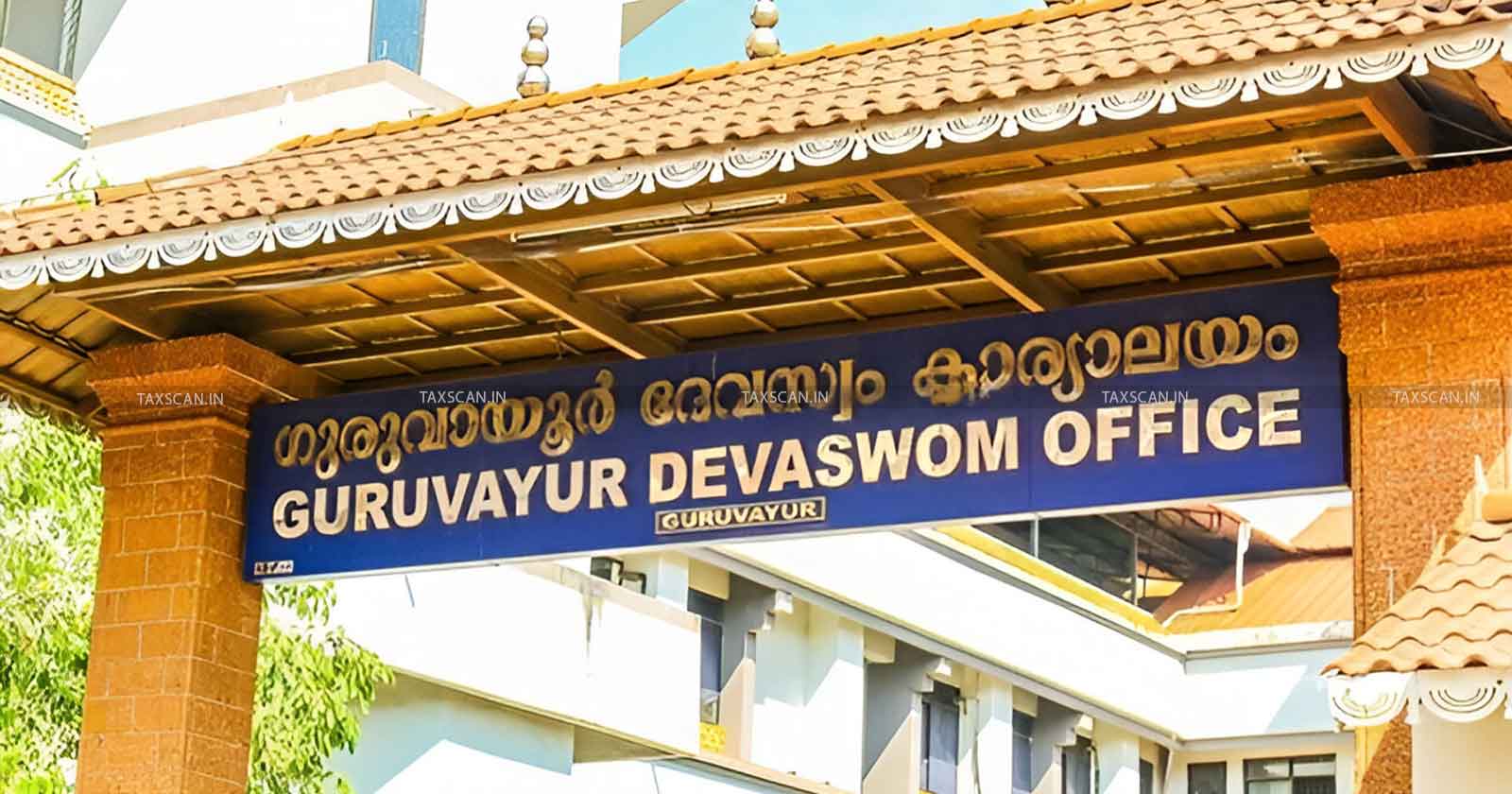DGGI Issues ₹4.52 Crore GST Demand to Kerala Guruvayur Devaswom Board Over Tax Evasion for 6 years
The notice claims non-payment and underpayment of Goods and Services Tax (GST) on services such as helicopter landing fees, vehicle hire charges, renting immovable properties to banks, and advertising fees for promotional materials like magazines, diaries, and almanacs

The Directorate General of GST Intelligence ( DGGI ) has issued a ₹4.52 crore tax demand to the Guruvayur Devaswom Board with 18% interest, alleging tax evasion over a six-year period from July 2017 to March 2023.
The notice claims non-payment and underpayment of Goods and Services Tax (GST) on services such as helicopter landing fees, vehicle hire charges, renting immovable properties to banks, and advertising fees for promotional materials like magazines, diaries, and almanacs.
The News Minute reported that the Guruvayur Devaswom Board Chairman VK Vijayan stated that "They visited us, and if we are found liable to pay something, we will comply. There are no issues between us. It is incorrect to say that we have evaded taxes.”
Complete Draft Replies of GST ITC Related Notices, Click Here
The Board, however, contested the demand, asserting its exemption under Section 23BBA of the Income Tax Act, 1961, which recognizes it as an approved institution managing religious trusts. It claims the income it generates is exempt from taxation and does not necessitate filing income returns under Section 139 of the Act, reported the TNM.
Under Section 10(23BBA) of the Income Tax Act, 1961, the income of any body or authority established, constituted, or appointed under a Central, State, or Provincial Act for administering public religious or charitable trusts or endowments is exempt from taxation. This provision applies to organizations managing institutions such as temples, gurdwaras, wakfs, churches, synagogues, agiaries, or other places of public worship, as well as societies registered for religious or charitable purposes under the Societies Registration Act, 1860, or similar laws. However, the clause explicitly states that this exemption does not extend to the income of the trusts, endowments, or societies themselves.
Support our journalism by subscribing to Taxscan premium. Follow us on Telegram for quick updates


